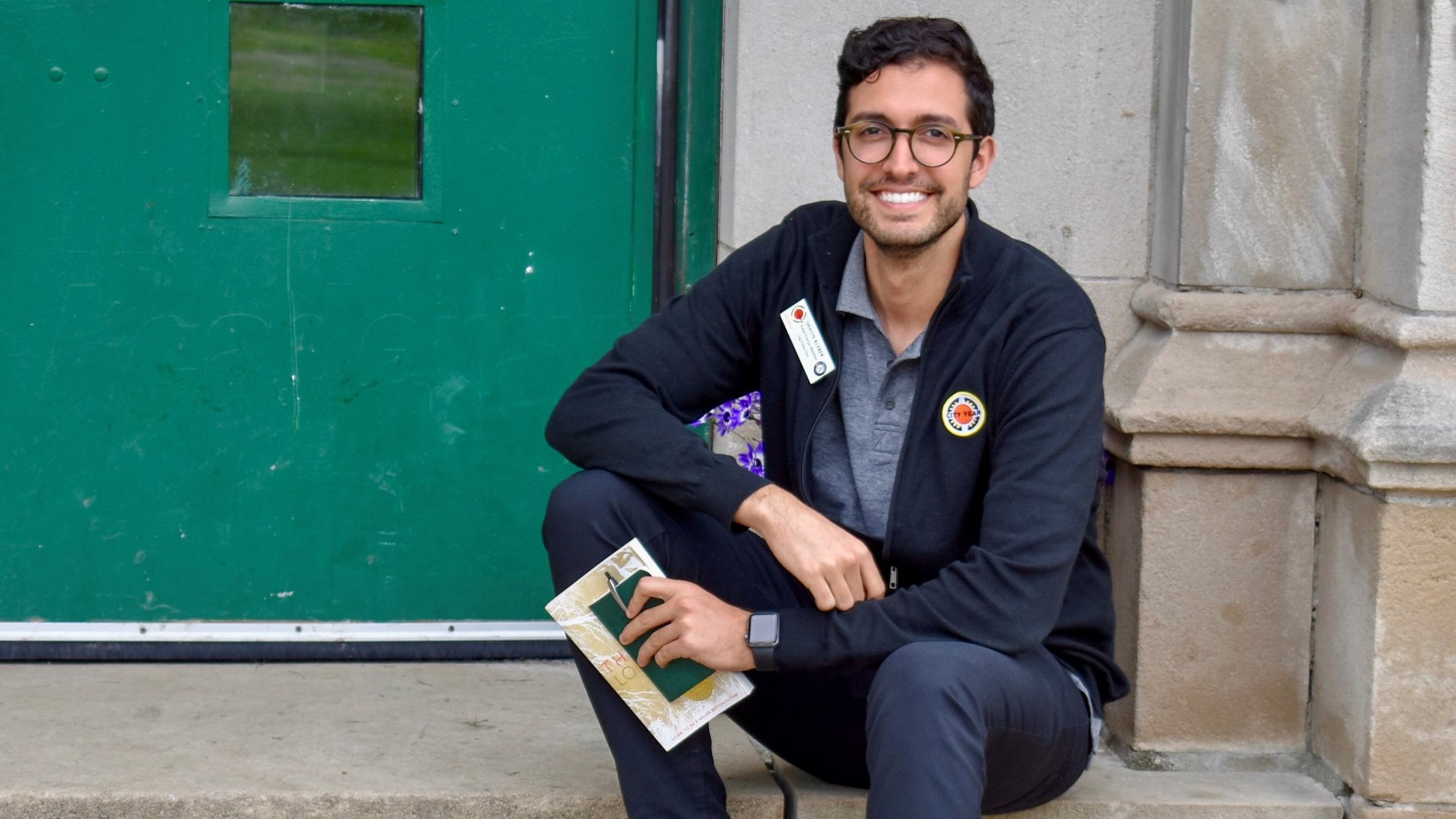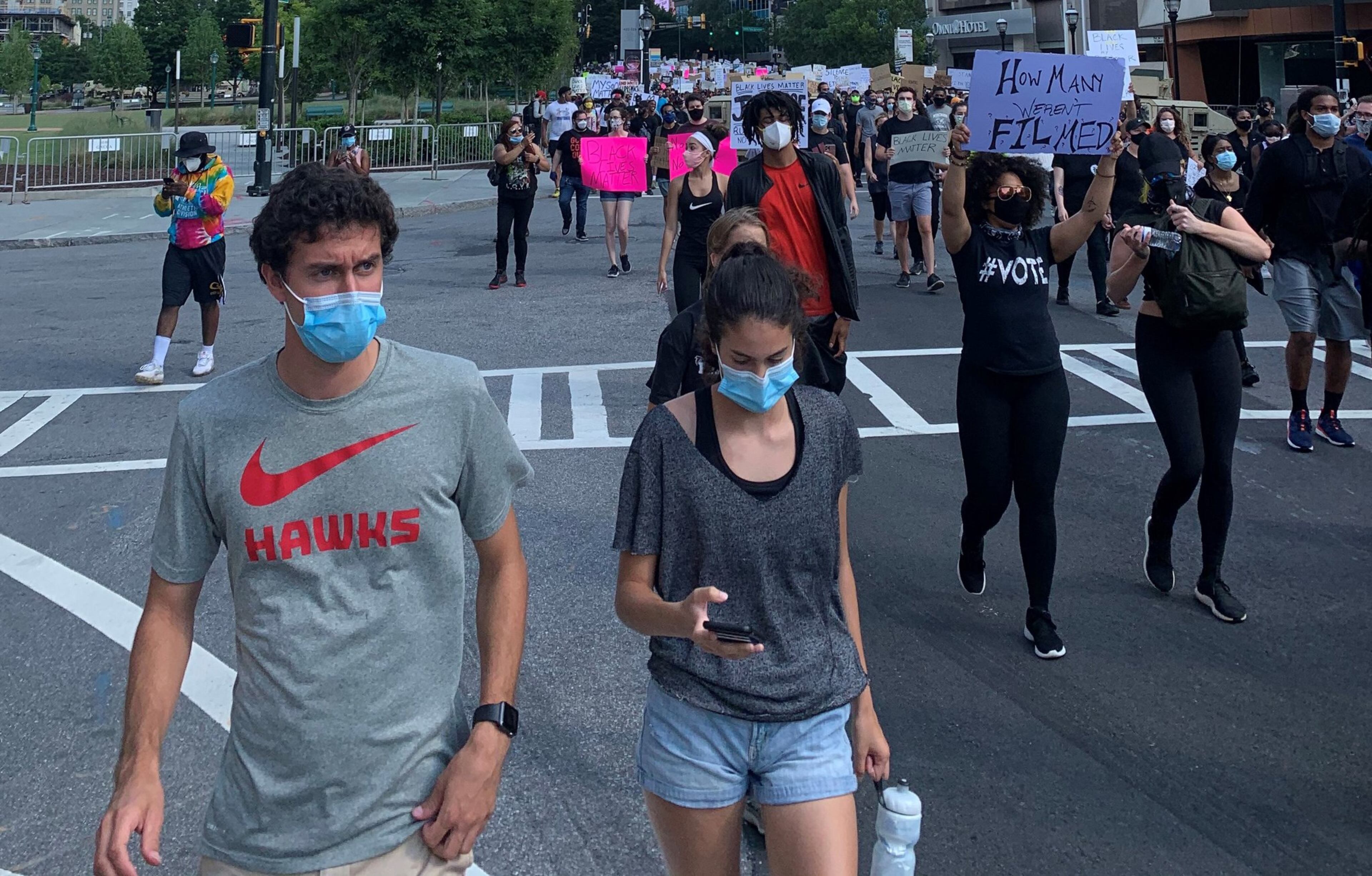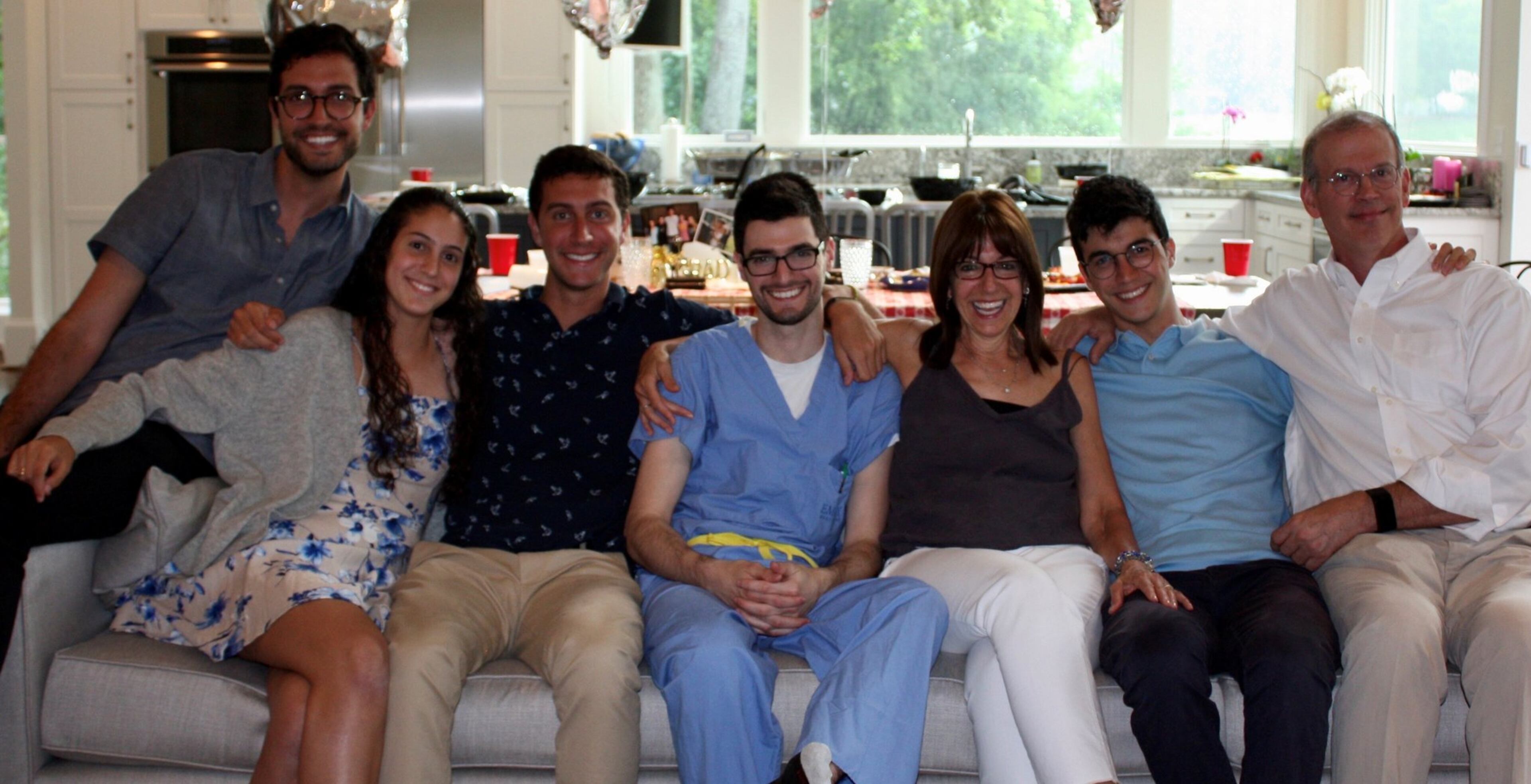Will protests bring change? Why this young Atlantan thinks they will

Metro Atlanta was entering its third day of protests back in June when Shaun Kleber, arriving home from a long day at the office, was met at the door by two of his four siblings.
“We’re about to head to a protest,” they told him as they headed out the door. “Want to join?”
Shaun dropped his bags, turned, and headed out into the street.
For weeks, he’d felt at times overwhelmed by the sheer weight of the issues plaguing our city and nation, and what seemed like a repeat of old history.
That’s saying a mouthful because Shaun Kleber is just 26, the oldest of Scott Kleber and Nancy Habif’s five children.
That last bit is important for you to know because it explains why he wouldn’t hesitate to join his siblings. Growing up in the Kleber home, they had dinner conversations that shifted early from just talking about what their day was like to what, if anything, each of them had done during the day to help someone else.
And so for the Kleber siblings, that has often meant being in lockstep with protesters or taking public officials to task, donating funds or getting more informed on the issues of the day, or just gathering with friends to discuss and commit to a particular action.
Kleber told me that while he’s sure protests alone won’t fix all that ails us, the times feel ripe for change.
“What feels unique about this moment is how many people are pushing in the same direction, at the same time, mostly in small ways,” he said.
RELATED | How do we push past the trauma caused by Charlottesville violence?
What has been encouraging to me is how many people of different cultures and ethnicities and ages seem to be finally heeding the call to action. They are educating themselves, signing petitions, registering people to vote, and attending protests in a way that is unprecedented both in scope and length of days.

The analogy Shaun Kleber keeps coming back to is voting: Any individual will almost certainly not be the tipping point for change, but when so many people decide to make a push together, even if everyone’s contribution is small, the collective impact is large.
“That’s what has sustained my focus on the little actions in this unique moment,” he said. “One more body at a protest, one more conversation with a friend or family member, one more call to my elected officials — it adds up, and it matters.”
At the same time, Kleber doesn’t want to be seen as the enlightened white person and wants to break the perceived binary that people are either self-actualized progressives on issues of racial justice or virulent racists.
He realizes that activism can easily become performative when, especially in times like these, being “woke” is cool in many social circles. He doesn’t want people patting him or themselves on the back for being “good.” He wants people to ask how they can do better, how they can push people and institutions around them to do better.
“People are dying because of systemic racism,” he said. “No one is ‘good’ as long as this is happening in our names.”
I first met Shaun at his home in 2003. His family was in the midst of celebrating the High Holy Days, when the Jewish community helps further the call of Isaiah “to share bread with the hungry.”
At the time, his parents, Scott Kleber and Nancy Habif, were collecting canned goods for the Atlanta food bank. Habif, once a regular volunteer at the downtown soup kitchen, was a project coordinator for Hands on Atlanta, and Scott Kleber, a medical doctor, had volunteered at the Jefferson Street homeless clinic.
RELATED | Polite conversations about racism and other hard issues
“We like to do those things,” he said at the time, “because it feels good. It feels right.”
But they didn’t take credit for their benevolence. The heart they tried to model for their children was the one their parents gave them.

“We’re a credit to who we came from,” Kleber said, “not for what we do.”
I was reminded of that as Shaun Kleber shared his heart with me recently, mostly via email.
Considering where we are as a nation, I was encouraged by his maturity, self-awareness, and honesty about his own struggle with racism.
Being mindful of his own biases and trying to better understand the ways racism is upheld in systems and his role in maintaining and supporting those systems, he said, is the first step to becoming, well, anti-racist.
Kleber leaned into unpacking that weight in 2019 while in Boston managing a team of student tutors serving in City Year, an AmeriCorps program, and wanting to have tough conversations about racism with white people and their role in perpetuating it.
He started a group called Dismantling Whiteness. Every other week, they met to air their thoughts and uncertainties, and challenge and support each other without relying on people of color for that emotional labor, or causing them harm in sharing these messy thoughts, even if unintentionally. It afforded him space to not only reflect on what it means to strive for anti-racism, but to understand how to recognize and challenge his own racism, whether that showed up as having lower expectations of minority children or something else.
RELATED | ‘Can we allow what has broken the heart of God to break ours?’
Kleber isn’t done. He considers this a lifelong pursuit and sees terms like “ally” and “co-conspirator” to be aspirations to pursue rather than labels to assign to himself.
“What’s important is not to wait for fully eradicating my own racism before working to eradicate it in society more broadly, and to approach this work with the humility that comes in knowing I am a work in progress,” he said.

I asked him if he’s hopeful the protests this time around will help.
“I really am because this moment feels different,” Kleber said. “We’ve long known that our ‘normal’ wasn’t working for a lot of people, but what has inhibited us from radical change in the past is that we have to rebuild the plane while we’re flying it. We don’t get to hit pause on society and fix everything that’s broken and then hit play — except now we do.”
For starters, he’d like to see a 50% reduction in the Atlanta Police Department’s budget, fully defunding the Atlanta City Detention Center, and reinvesting any saved money in reentry programs, low-income housing, mental health, and other social services. And he believes a broader conversation about what a world that doesn’t rely on prisons and police, that is more dedicated to care and community over punishment and judgment is needed.
It’s hard to listen to him and not think Kleber has a lot to teach us old folk if we’d only listen, but that’s not why he’s sharing his story.
“I hope that what people hear in me is not answers but questions,” he said. “Questions we should all be asking about what’s happening around us, how we got here, how we move forward, and what each of our roles are in building a better future.”
I hope those questions will lead us to honest answers.
Find Gracie on Facebook (www.facebook.com/graciestaplesajc/) and Twitter (@GStaples_AJC) or email her at gstaples@ajc.com.


